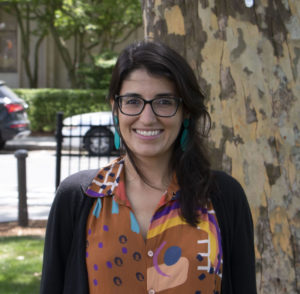Luísa Reis-Castro is a PhD candidate in MIT’s program in History, Anthropology, and Science, Technology, and Society (HASTS), examining new technologies for controlling mosquito-borne diseases as a window to discuss science and public health policies. She uses a qualitative, ethnographic approach to examine the relationship between environment and health, aiming to offer specificity to humanistic reflections on anthropogenic effects on the livable world and to solutions proposed to mitigate such effects. Her research focuses on different vector control projects being researched, tested, and implemented in Brazil, which attempt to use the mosquito as a means of controlling the pathogens it is known to transmit. Combining theoretical and methodological tools from anthropology, science and technology studies (STS), and environmental humanities, Luísa examines these projects to develop a framework for understanding how the deployment of different scales—national, ecosystemic, regional, molecular, global—can determine research and responses to disease transmission and health outcomes.
In addition to the generous support of the Martin Family, her dissertation research has also been supported by the Wenner-Gren Foundation, Social Science Research Council (SSRC), National Science Foundation (NSF), MIT Center for International Studies, and MIT-Brazil Program. Before attending MIT’s HASTS program, Luísa received both her MSc in Cultures of Arts, Science and Technology and her MA in Studies on Society, Science and Technology at Maastricht University in the Netherlands. For her BA in Social Sciences, she attended the Universidade Federal de Minas Gerais, in Brazil.

